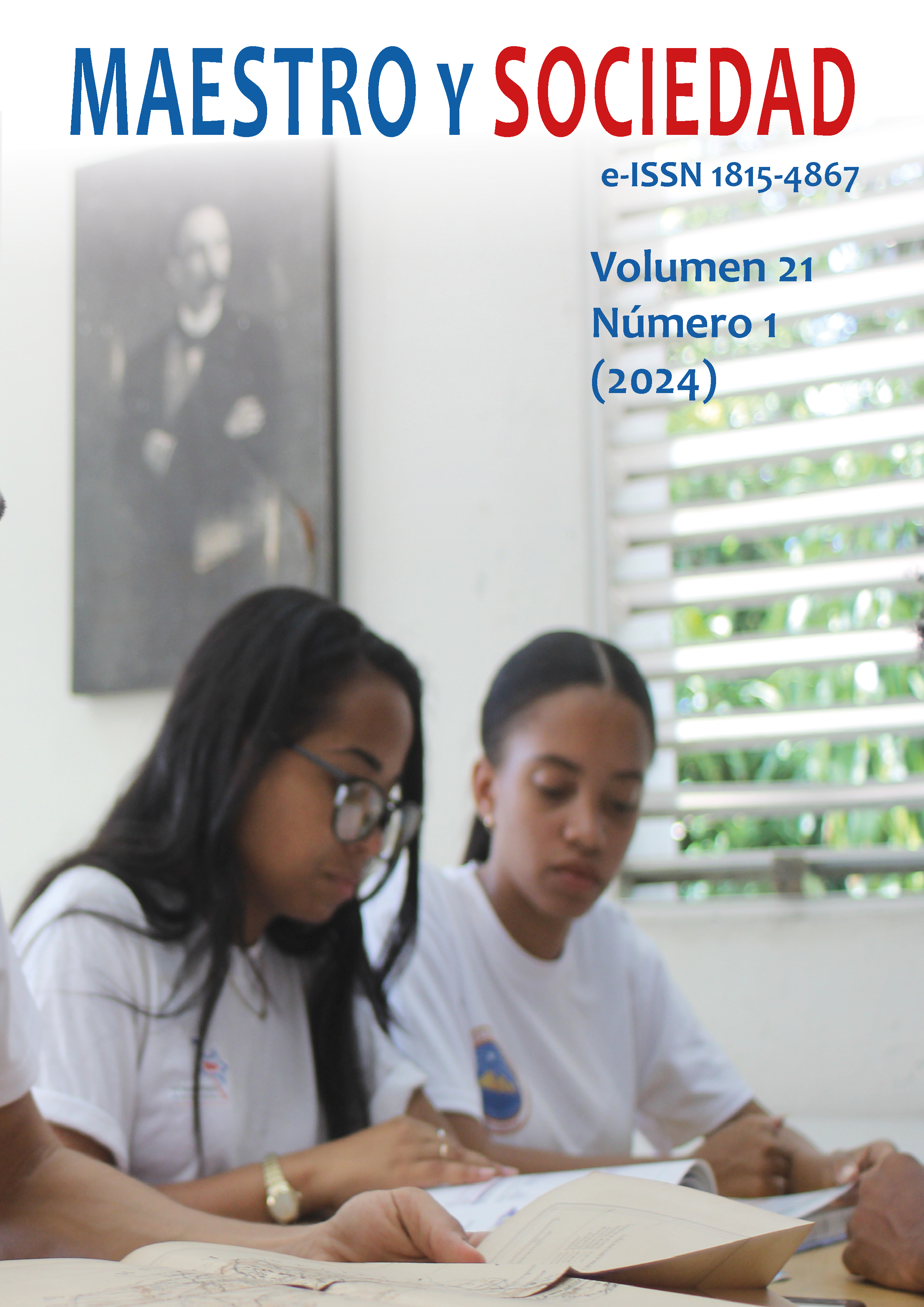Improvement strategy for recently graduated doctors on cardiopulmonary resuscitation
Keywords:
Continuous formation, strategy of overcoming, revivers cardiopulmonares, sudden death, stop cardiorespiratoria, cardiac stop, respiratory stopAbstract
Introduction: Sudden death can be caused by a stop cardiorespiratoria so that revival is supposed to be applicable immediately cardiopulmonar. The statistics stir up than a great many people that cardiorespiratoria suffers stop you perish before getting to a health care facility not to apply the technique of revival cardiopulmonar. The general objective of our investigation is to implement a strategy on revival cardiopulmonar basic in doctors of recent graduation. Method: They used methods of the theoretic level, empiricist and statistician – techniques and instruments like the opinion poll, the interview and the observation used mathematical Every which the one that enabled an analysis of the information with a mixed focus for the obtaining of the primary piece of information themselves,, the population of study got conformed by 19 people of which 13 doctors of recent graduation, 2 white-collar workers and 4 teachers. Results: Exists a support and motivation for part of the white-collar workers, teachers and doctors of recent graduation to the implementation of the strategy of overcoming and the majority of the polled showed insufficiencies in the command of revival cardiopulmonar before applying the educational intervention, what the program of the overcoming modified itself once applied. Discussion: Our study agreed with another authors as to the discussed aspects. Conclusion: A strategy implemented feasible overcoming itself and pertinent envelope revival cardiovascular in doctors of recent graduation.
References
Alcalá López, J. E., Macías Bellido, C., Hernández Simón, P. y Rodríguez Padial, L. (2017). Cardiopatía isquémica: concepto, clasificación, epidemiología, factores de riesgo, pronostico y prevención. Med., 12(36), 2145-2152. doi:10.1016/j.med.2017.06.010
Delgado, M., Torres, M. y Arroyo, A. (2013). Evaluación del aprendizaje de estudiantes de educación secundaria tras un programa de promoción de la salud sobre primeros auxilios. Rev Paraninfodigital, 7, 19. http://www.index-f.com/para/n19/ 240d.php
Durán Fonseca, A. M., Céspedes Acuña, J. E. y Cintra Lugones, Á. L. (2018). Estrategia de superación para fortalecer la Historia de la Medicina de Santiago de Cuba. https://doi.org/10.18004/mem.iics/1812-9528/2017.015(01)63-072
García García, J. J., Moreno Altamirano, L. y Flores Ocampo, A. E. (2020). La investigación-acción como estrategia educativa para la obtención de aprendizajes significativos en la promoción de la salud pública en alumnos de la facultad de medicina de la UNAM. Investigación en educación médica, 9(36) ,41-51. http://doi.org/10.22201/fm.20075057e.2020.36.20228
Garza Saldívar, A. (2017). ¨La muerte del otro¨. Andamios, Revista de investigación social, 14(33). doi:10.29092/uacm.v14i33.543
Gómez Zárate, E. y Márquez Ávila, G. (2010). Conocimiento y Habilidades sobre reanimación Cardiopulmonar Básica en médicos Internos de Pregrado. Archivos de Medicina de Urgencia de México, 2(2), 55-59.
Hernández Suarez, D., Rodríguez Acosta, Y., Hernández Suarez, D. y Tapanes Acosta, M. (2022). Las estrategias curriculares en función de la formación integral del egresado de las ciencias médicas. EDUMCENTRO, 14, E1729. http://scielo.sld.cu/scielo.php?script_sci-arttext&pid_s2077-28742020001000023&ting_es
López Fernández, A. G., Cruañas Sospedra, J., Salgado Friol, A. H., Lastayo Bourbon, L. H., Pérez Yero, C. M. y Rigual Delgado, S. M. (2017). Una propuesta de aplicación de estrategia curricular de investigación e informática en la carrera de medicina. http://scielo.sld.cu/scielo.php?script_sci arttext&pid_S1684 18592017000100006
López - González, A. et al. (2017). Conocimiento sobre reanimación cardiopulmonar básica y avanzada de adultos médicos residentes de un hospital de tercer nivel en Paraguay. Memorias del Instituto de Investigaciones en Ciencias de la Salud, 15(1),63-72. https:// doi.org/10.18004/mem.iics/1812-9528/2017.015(01)63-072
Mansilla Olivares, A. et al. (2018). Postura de la academia Nacional de Medicina de México en relación con las decisiones sobre el final de la vida. Gac Med Mex., 154(6), 732-736.
Morin, E (1998). Introducción al pensamiento complejo. Gedisa
OMS. (2019). Informe OMS ¨Las 10 primeras causas de defunción, 2019¨. https://www.who.int/es/news-room/fact-sheets/detail/the -top-causes-of death
Rodríguez Ledesma, M. A. y Rueda Montero, J. C. (2008). Aprendizaje de la Guía de Reanimación Cardiopulmonar: Influencia del Grado Académico y la Experiencia Laboral en Urgencias. Rev Med Inst Mex Seguro Soc; 46(1), 3-10.
Vallejo Portuondo, G. R., Mendo Alcolea, N., Lahera Puig, M. L. (2019). Procedimientos diagnostico-metodológicos para la implementación de las estrategias curriculares en la educación superior. http://scielo.sld.cu/scielo.php?scvript_sci arttex&pid_1029301920190000200360
Published
How to Cite
Issue
Section
License
Copyright (c) 2024 Yuri Alvarez Magdariaga, Ana Lidia Ford Torralba, Belkis Luisa Aranda Cintra

This work is licensed under a Creative Commons Attribution-NonCommercial-NoDerivatives 4.0 International License.
This journal provides immediate open access to its content, based on the principle that offering the public free access to research helps a greater global exchange of knowledge. Each author is responsible for the content of each of their articles.



























 Universidad de Oriente
Universidad de Oriente 